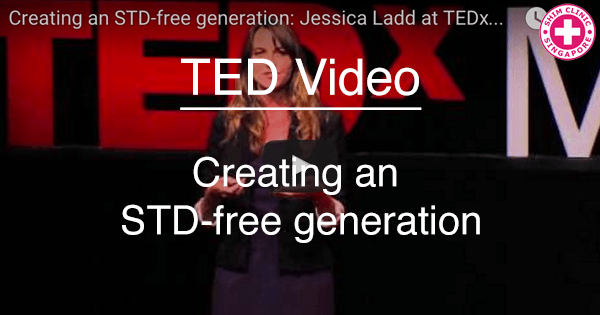Jessica Ladd, the founder of Sexual Health Innovations, talks about a STD-free generation in this video. Her organization, Sexual Health Innovations is an organization that uses modern day technology to improve sexual health and spread awareness.
She initiates her talk on a very funny note by talking about sex and how awesome it is in general. She is one of the few pioneers of sexual health in the current generation. She presents her ideas in the language of the common people, indeed in the language of the youngsters. Although it is a well-known fact that a large proportion of the current generation is affected by STDs, the actual numbers relating to STDs are still surprising. She points our that 1/4th of the people today at affected by STDs and that 13-23 billion dollars are spent each year in fighting STDs.
STDs are quite variable and not as harmless as they are supposed to be. They can lead to death, infertility, ectopic pregnancies and other long term implications. In a sexual community, if one person gets infected by an STD, not necessarily all the partners get infected. This may depend on use of protection measures like condoms, HIV PrEP, HIV PEP or merely on chance. In addition, not all infected individuals are diagnosed. As most STDs are asymptotic or have very general symptoms, diagnosis is not very common, unless through routine check-ups. If all diagnosed individuals informed their partners and adopted necessary measures to prevent the STD from spreading, then sexual networks can be cleared of STDs. Subsequently STDs can be eradicated.
However in case of HIV, even though eradication is not a possibility, controlling the spreading of the virus can keep the disease under check, avoid new infections and manage existing ones. The transmission of HIV can be controlled by propagating information about the disease. Infected individuals who are diagnosed can share the information with their sexual partners and adopt preventive/protective measures like use of condoms, medicines and less risky behaviour.
The fact that STDs are sexually transmitted, is a boon as well as bane in itself. It can be considered as a boon because the nature of transmission (i.e. sexual) allows control. The transmission is more limited in comparison to air-borne or water-borne diseases. It can be considered as a bane as sexual topics are usually awkward and people are often not very open about discussing their sexual health. The internet has somewhat come to rescue in this situation. Jessica describes it as one of the most efficient health communication tool when used effectively.
Jessica introduces an initiative, a website called ‘So They Can Know’, which can be used by people diagnosed with STDs for informing their partners about their diagnosis. The website is not just a communication tool, it is also an information bank which provides several articles and information about how to deal with this situation, how to have to conversation and how to embrace such a situation. It also provides information to the partners for the follow up steps after the diagnosis of their partners. The website is very user friendly. It addresses all the requirements of the patients and their partners, including emotional requirements as well as medical requirements.
Jessica concludes her talk by saying that if everyone becomes responsible of their own sexual health. If they embrace their sexuality as well as that of others, prioritize their sexual health and communication between sexual partners, a STD-free generation can be established.

